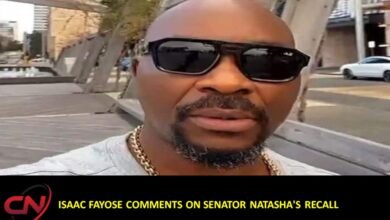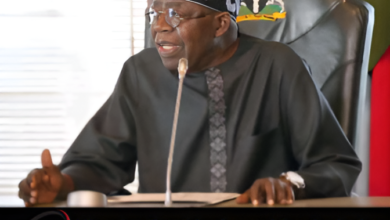Nigeria’s 2024 Budget: Tinubu Seeks Approval for ₦1.77 Trillion External Borrowing
President Bola Tinubu has officially requested the National Assembly's approval for a new external borrowing of $2.209 billion (approximately ₦1.767 trillion). This move is part of the government’s strategy to finance the 2024 budget, which currently faces a fiscal deficit of ₦9.17 trillion.

Nigeria’s 2024 Budget: Tinubu Seeks Approval for ₦1.77 Trillion External Borrowing
Advertisements
President Bola Tinubu has officially requested the National Assembly’s approval for a new external borrowing of $2.209 billion (approximately ₦1.767 trillion). This move is part of the government’s strategy to finance the 2024 budget, which currently faces a fiscal deficit of ₦9.17 trillion.
The request, communicated through letters addressed to the Senate President, Godswill Akpabio, and the Speaker of the House of Representatives, Tajudeen Abbas, aligns with the provisions of the Debt Management Office (DMO) Establishment Act, 2003 (Sections 21(1) and 27(1)). The Federal Executive Council (FEC) had previously approved the borrowing plan.
Table of Contents
ToggleThe Purpose of the Borrowing
President Tinubu explained that the proposed funds would be raised through Eurobonds or other external borrowing instruments in the international capital market. The goal is to ensure the smooth implementation of the 2024 budget, addressing critical national priorities while supporting broader fiscal strategies.

The President highlighted the urgency of the matter, appealing to legislators for swift action. Timely approval, he noted, is crucial to mobilizing the funds necessary for addressing the country’s economic challenges.
The Mid-Term Expenditure Framework and Fiscal Strategy Paper (MTEF/FSP)
In addition to the borrowing request, Tinubu submitted the 2025–2027 Mid-Term Expenditure Framework and Fiscal Strategy Paper (MTEF/FSP) for parliamentary consideration. This document provides a roadmap for Nigeria’s fiscal policies over the next three years and reflects the government’s long-term economic strategies.
The Senate referred the MTEF/FSP to the Senate Committees on Finance and National Economic Planning, led by Senator Sani Musa (APC, Niger East), for review and recommendations.
Legislative Action and Timelines
The Senate President directed that the borrowing plan be reviewed by the Committee on Local and Foreign Debts, chaired by Senator Aliyu Wamako (APC, Sokoto), with a 24-hour timeline for reporting back. This fast-track process underscores the urgency attached to the request.
Implications of the Borrowing Plan
While external borrowing is a common tool for addressing fiscal deficits, it raises questions about Nigeria’s debt sustainability. The government must strike a balance between financing critical projects and avoiding excessive debt accumulation. Transparency in the terms and conditions of the borrowing, as outlined in the President’s letter, will be key to gaining public and legislative confidence.
Next?
As the National Assembly deliberates on the proposal, the focus will be on ensuring that the funds are utilized efficiently and targeted at areas with the highest economic impact. With the President’s appeal for swift action, all eyes are now on the legislators to see how they respond to this crucial request.
Conclusion
The ₦1.77 trillion external borrowing plan is a defining moment for Nigeria’s economic strategy under President Tinubu’s administration. It represents an opportunity to address pressing budgetary needs while navigating the challenges of debt management. Stakeholders across the nation will be keenly watching how this plan unfolds, and its eventual impact on the country’s financial stability and development story.
Stay tuned as we provide updates on this developing story.









